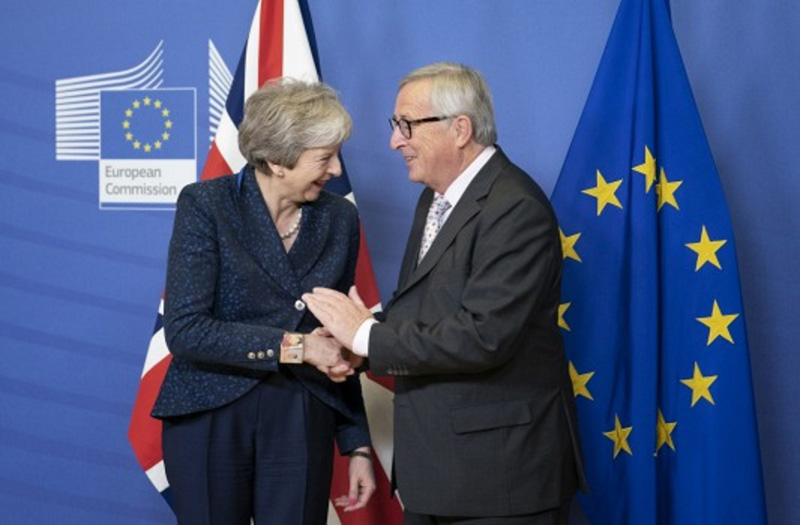


|
|
|
|
The
European Council agreed on the withdrawal of the United Kingdom of Great
Britain and Northern Ireland (UK) from the European Union (EU) and the
European Atomic Energy Community.
The
political document covers Britain's 39-billion-pound "divorce
bill", citizens' rights and the Northern Ireland "backstop" -
a way to keep the Irish border open, if trade talks stall.
The
European Council also approved the Political Declaration setting out the
framework for the future relationship between the EU and Britain.
The
Political Declaration sets out what Britain and the EU's relationship may be
like after Brexit, outlining how things like UK-EU trade and security will
work.
European
Commission President Jean-Claude Juncker said that "it's a sad
day," as he arrived Sunday for an EU summit in Brussels to endorse the
Brexit agreement. He told reporters that the summit "is neither a time
of jubilation nor of celebration. It's a sad moment, and it's a
tragedy."
"Let's
pave the way towards a close post-Brexit relationship," he said.
"The UK is leaving the European Union not Europe."
Asked
whether a better agreement can be found, should the British Parliament reject
it, Juncker said: "This is the deal. It's the best deal possible. The
European Union will not change its fundamental position."
Britain
is scheduled to leave the economic and political union on March 29, 2019.
The
terms of the UK's withdrawal have been under negotiation since June 2016
following a referendum, in which 52 percent voted for Brexit.
Even
if the EU approves the deal, it still has to be passed by the British
Parliament as many MPs have stated their opposition.
|